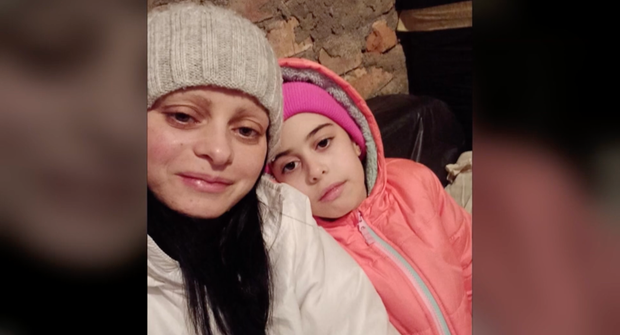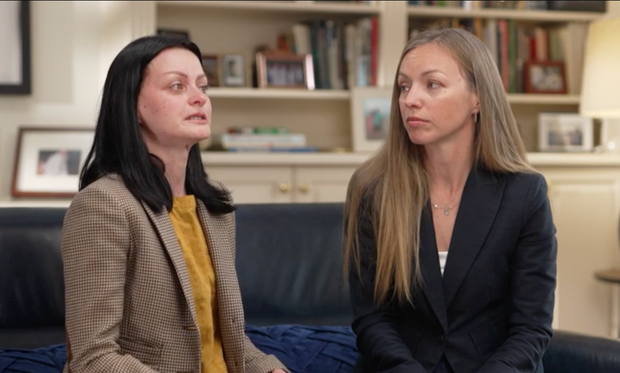Yana, a 10-year-old fourth-grader from Ukraine with a bright smile and big dreams, expressed feeling welcomed in New Jersey, describing the U.S. as “very, very, very nice.”
“I like the flowers here,” Yana said in English, which she has learned remarkably quickly. “People aren’t, like, being mean to anybody. They’re being nice to everybody.”
When asked if she feels safe in America, Yana confidently replied, “Yeah.”
Roughly two years ago, Yana and her family experienced a life-altering event when Russia invaded their native country. Olena Kopchak, Yana’s mother, vividly recalls the moment their neighborhood in Mykolaiv was shelled by the Russian military.
“We heard powerful explosions,” Kopchak recounted in her native language. “We could not believe it at the beginning … our house was literally moving. It started to shake. We thought it was the end.”
Following Russia’s invasion in February 2022, millions of refugees, mostly women and children, were displaced, leading to the largest refugee exodus in Europe since World War II. The U.S. responded by welcoming 100,000 Ukrainians, including Yana and her family.
The Biden administration introduced the “Uniting for Ukraine” program in April 2022, allowing Ukrainians sponsored by Americans to work in the U.S. legally without the need for a lengthy visa process. Lana Rogers, Kopchak’s sister and a U.S. citizen, utilized this program to sponsor her sister and her family, who arrived in New Jersey in June 2022.
Since the inception of the Uniting for Ukraine program, over 236,000 cases have been approved, with more than 187,000 Ukrainians arriving in the U.S. under this policy by the end of March. An additional 350,000 Ukrainians have entered the U.S. through temporary visas since the Russian invasion.
The successful implementation of the Uniting for Ukraine program has been met with less controversy compared to other U.S. immigration policies. Unlike programs for migrants from Cuba, Haiti, Nicaragua, and Venezuela, the Uniting for Ukraine program has not faced legal challenges and has garnered bipartisan support.
With no numerical limit and efficient processing times, the Uniting for Ukraine program showcases the U.S.’s ability to act swiftly in times of crisis. The warm reception of Ukrainian refugees in the U.S. is attributed to geopolitical solidarity and the perception of Ukrainians as victims of Russian aggression.
Highlighting more than some new arrivals, Vignarajah argued that the unique nature of Uniting for Ukraine sets it apart.
Individuals who come to the U.S. under Uniting for Ukraine must have an American sponsor who is willing to provide financial support. They are allowed to work legally immediately upon arrival in the U.S. Additionally, Congress has made the first wave of Ukrainian refugees eligible for refugee resettlement benefits, including food stamps.
In contrast, migrants arriving from the southern border cannot work legally until 180 days after requesting asylum and are generally not eligible for federal benefits. Those from Cuba, Haiti, Nicaragua, and Venezuela who arrive under a different sponsor policy must apply for a work permit before being able to work legally.
Vignarajah suggested that race may also be a factor in how Ukrainians are welcomed compared to other immigrant populations, stating that racism and xenophobia may have influenced the unique treatment Ukrainians have received.
However, Ukrainians face their own challenges as their permission to stay in the U.S. under humanitarian parole expires every two years, and they do not have a clear path to permanent legal status or American citizenship.
While the Biden administration anticipates that most Ukrainians will return home once the conflict in their homeland ends, there is currently no indication of when that might occur.
“I cannot come back,” Kopchak expressed in English, highlighting that her hometown of Mykolaiv is still being bombed by the Russians. “I have no house, I have nothing.”
Costanza Maio contributed to this report.
Loading PerspectiveSplit analysis...










